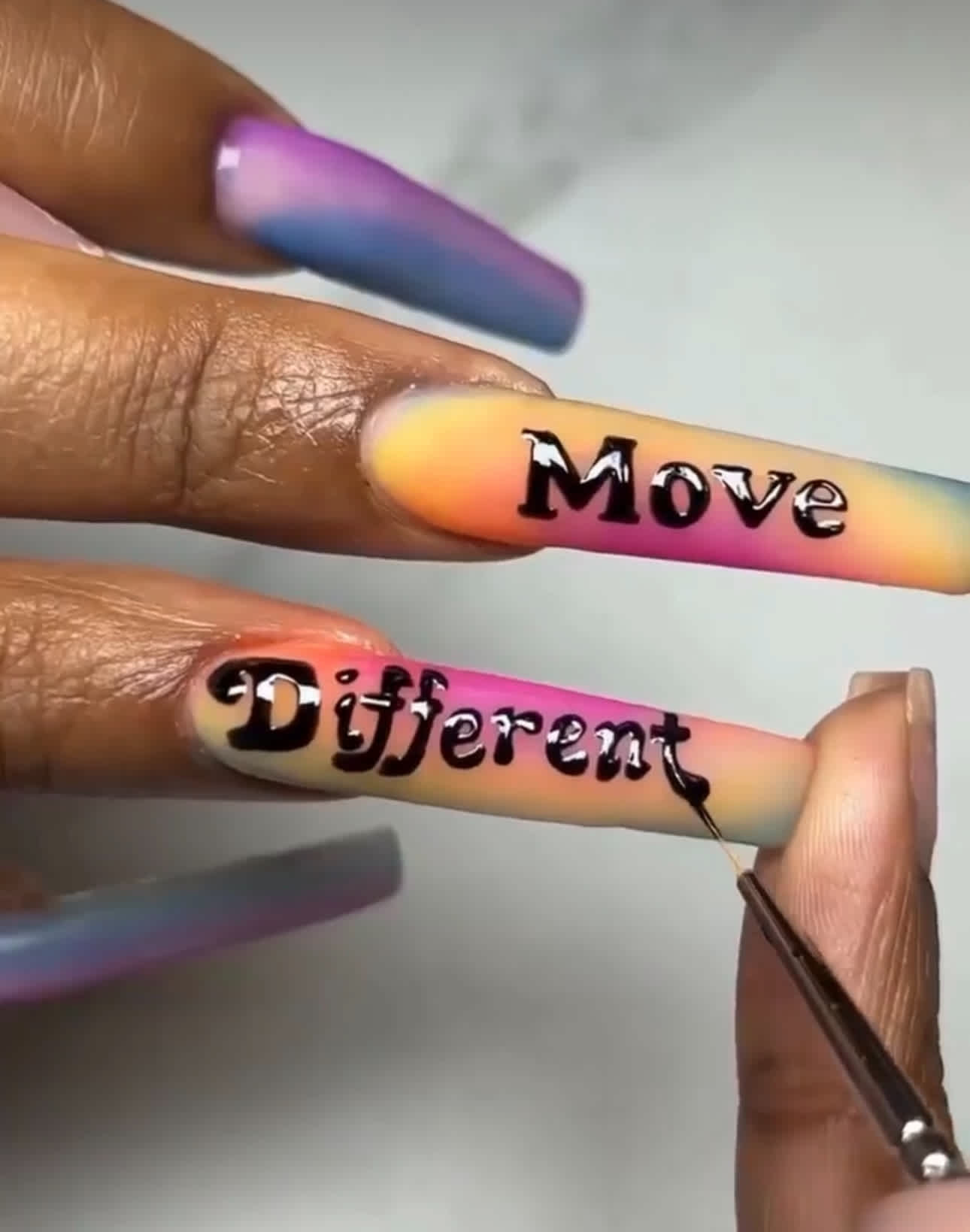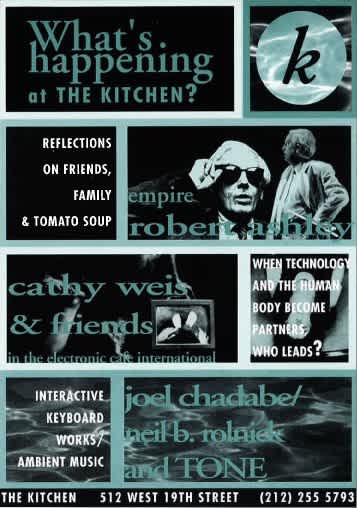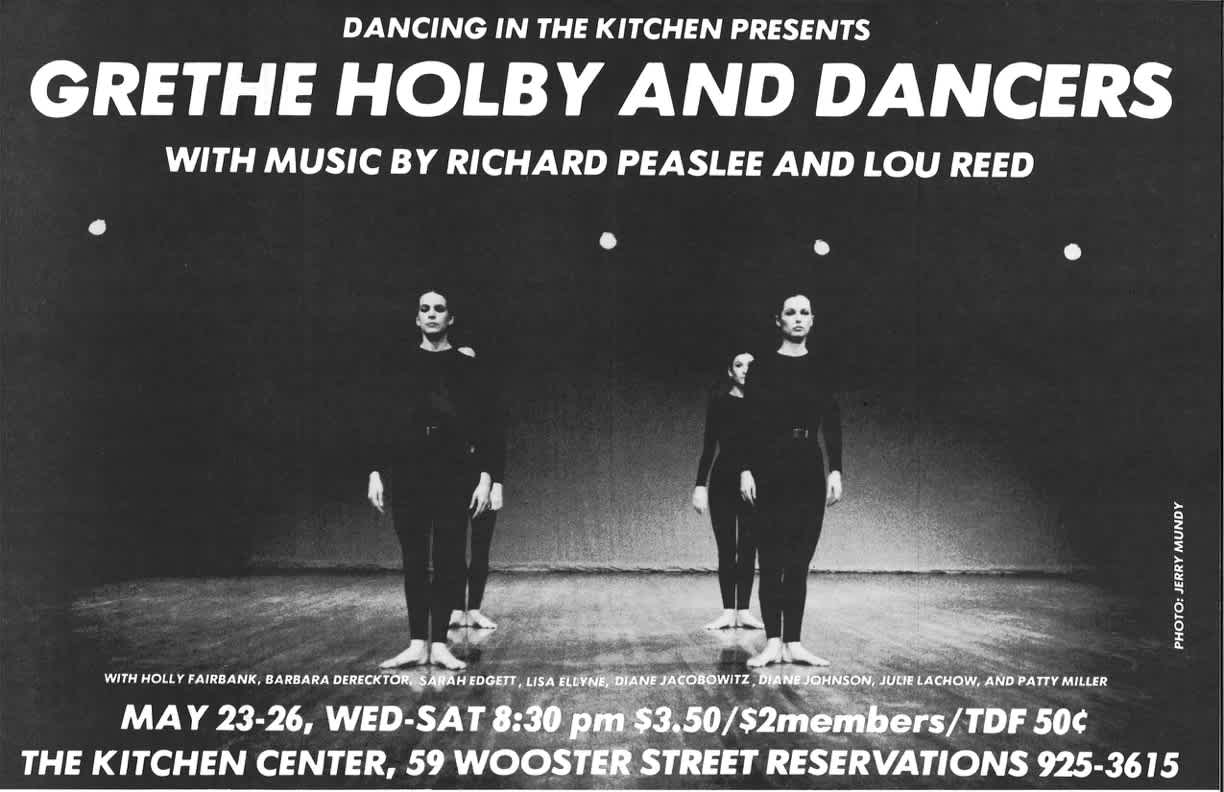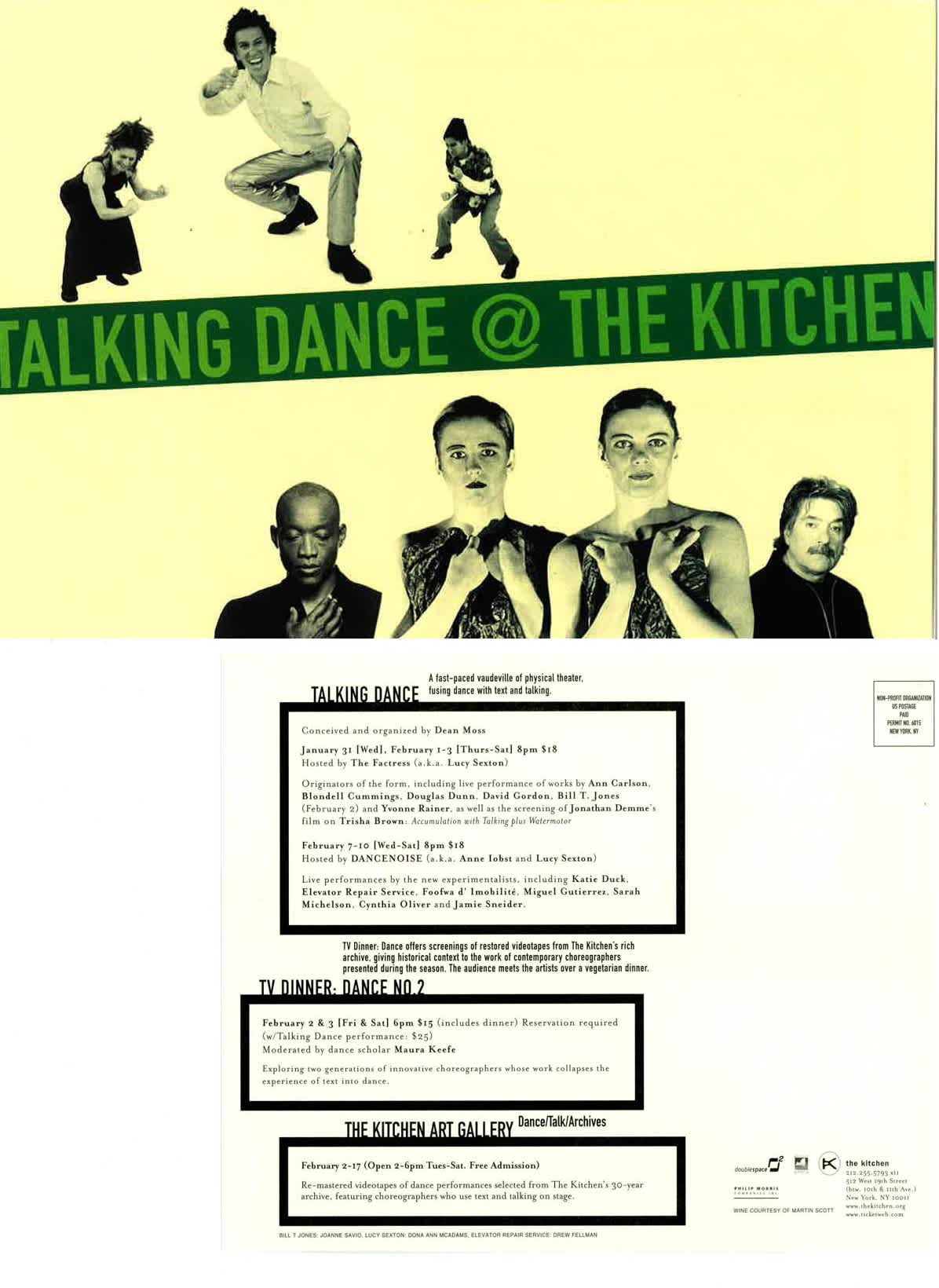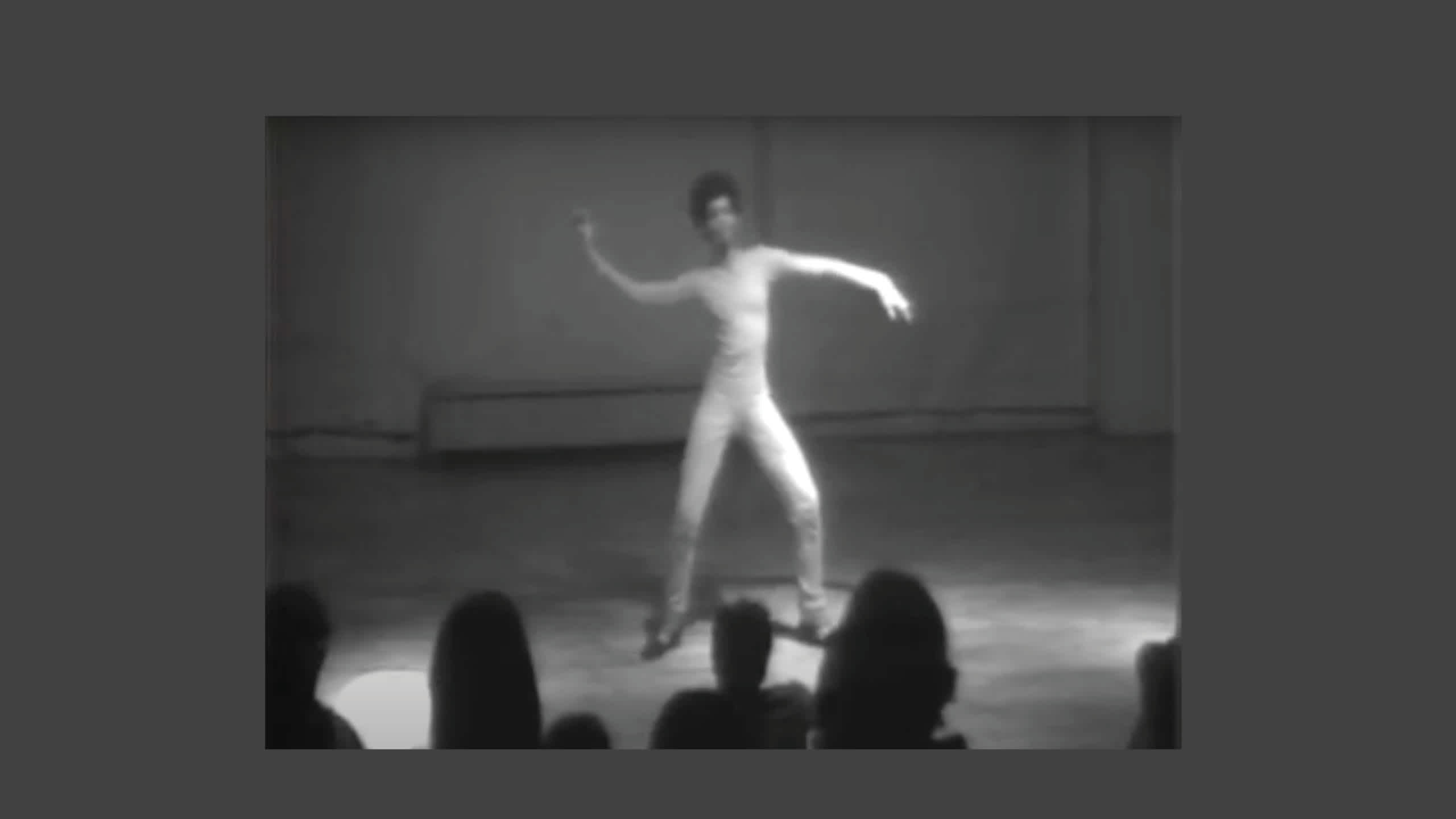
On View: September 4-October 26, 2024
47 Canal (59 Wooster St 2nd floor, New York, NY 10012)
Time:
September 4–14; September 20–October 26, 2024; Gallery hours: Free, Tuesday–Saturday, 10am-6pm and by appointment
Between 1974–1985 The Kitchen expanded its interdisciplinary program–exploring formats and presentations of music, video art, and performance–on the second floor of 484 Broome Street (on the corner of Wooster Street) in SoHo. This fall The Kitchen returns to its former location, now home to the art gallery 47 Canal, for a curated program that highlights distinct works from the historic Wooster Street loft years. The Kitchen in Focus at 47 Canal will comprise two exhibition programs across September and October 2024.
From September 4–14 the gallery will host a presentation of work from Dancing in the Kitchen, the institution’s innovative and longest running dance series established in 1978. Initiated by then Dance Curator Eric Bogosian, Dancing in the Kitchen, inaugurated a program organized around set of performances that hosted one choreographer a month who performed a new work across three or four evenings at The Kitchen. The program structure supported artists at various stages of their careers as they developed and presented new work to the public for the first time. The format of the series lent itself to a range of themes and formats such as dance festivals, artists in conversation, rehearsals, and varying durational showcases. This distinct approach to support and engagement created a space for experimentation and network for the New York dance and performance community that continues today. In 1990, The Kitchen’s Dance Curator Steve Gross, restructured Dancing in the Kitchen, re-naming it to Working in the Kitchen, and in 1995, the series title shifted again to Dance in Progress before taking the name Dance and Process in 2005, now known as The Kitchen’s longest running dance series to date.
This first program at 47 Canal will center around video recordings of movement-based works by artists Andy de Groat, Susan Rethorst, and Elizabeth Streb. Andy de Groat’s 1981 presentation at The Kitchen included Portraits of American Dancers, Dutch Circumstances (DUST), and (Gravy) a medicine of spaces. de Groat’s (Gravy), included in Focus, was accompanied by Julius Eastman's The Holy Presence of Joan d'Arc (1981), and was conducted live by him. In December of 1980, Susan Rethorst brought The Life of the Wasp, a dance piece for sixteen women, to The Kitchen. Playing on Doris Humphrey’s dance piece titled The Life of the Bee (1929) and on the socioeconomic label “W.A.S.P.", Rethorst created a commentary on commerce and community. Elizabeth Streb’s Ringside/Fall Line (1982) comprised two dance works: Fall Line, performed with Michael Schwartz, was danced on a “hill,” a 35-degree inclined plane that required them to utilize their arms and legs for support. Streb’s solo work, Ringside, focused on the limitations of dance movements in a confined space. To demonstrate this, Streb performed a multitude of different actions on a slightly tilted disk. These videos will be on view alongside key materials from The Kitchen’s archive.
The Kitchen in Focus at 47 Canal will feature a second program with a solo exhibition of work performed by American choreographer and performer Sheryl Sutton from September 20–October 26, 2024. The Kitchen in Focus at 47 Canal continues the organization's exploration of site and cross-institutional collaboration during this “Without Walls” period as The Kitchen’s Chelsea building is under renovation and we operate from our temporary home at Westbeth Artists Housing.
Part two of The Kitchen in Focus at 47 Canal
The Kitchen in Focus at 47 Canal features a second program with a solo exhibition of work by American choreographer and performer Sheryl Sutton (born 1950), on view September 20–October 26, 2024. Sheryl Sutton began her career as a performer with theater director Robert Wilson in the 1970s, starring in a number of productions including Deafman Glance (1971), A Letter For Queen Victoria (1974), Einstein on the Beach (1976, 1984) and Zinnias (2013), among others. During this period she toured the world with Wilson’s company, performing at venues like Shiraz Festival, Brooklyn Academy Museum, Festival d’Avignon, Kennedy Center, Metropolitan Opera, Opera Comique, Spoleto Festival, and Théâtre de la Musique. She danced with Andy de Groat’s red notes company from 1978-1983. She recently performed with Big Dance Theater in The Road Awaits Us at NYU Skirball Center (2019) and Carolina Performing Arts (2023), and with Paul Lazar in Cage Shuffle Marathon at La MaMa (2022). She is also the subject of a play by writer and critic Hilton Als, Lives of the Performers.
The Kitchen in Focus centers around a rare video of Sutton’s acclaimed performance Paces which was originally performed in The Kitchen’s Wooster Loft in 1977. This two-part work featured a solo dance performance accompanied by two musicians, Shlomo Gronich and Toshi Tsuchitori, and a dramatic presentation. The work explores the basic movements, or paces, that comprise a routine. The second part demonstrates Sutton’s voice and dramatic skills, in which she vocalizes vowel sounds and acts out a comedic scene. In speaking about her time at The Kitchen, Sutton recalled, “My work at the Kitchen was very important to me. It was one of the first pieces on my own with live music which allowed for my improvisational dance and the collaboration with music and others which supported my performances for many years thereafter. It was both scary and fun and unforgettable.”
Focus also includes archival materials from Richard Gallo’s A Killer’s Loose But Nobody’s Talking (1980), an excerpt from his work Suspect on Black Coal which premiered in Munich in Fall 1980 and was presented at The Kitchen on May 15-16, 1980. The performance featured Sutton, performers Mae Alexander, Lenny Hanschman, Ada Winston, Clorisa Ainley, and Max Mueller, with Philip Haight (design), Victor Ginsburg (video), Martin Fischer and Daniel Stipe (music), Larry Busch and Michael Zwack (Lighting), and H. Lugus (Production). Gallo’s work was based on experiences lived through “mechanical vision”—the recording of images with the unconscious mind—which operates when an individual faints, is dizzy, and manifests dementia and delirium, among others. Gallo was interested in an experiential investigation that rejected the rational and ordinary vision of reality to embrace oblivion.
Robert Wilson’s acclaimed short film Deafman Glance (1982) which stars Sutton is also included in the exhibition. The experimental work was excerpted and adapted for television and featured in The Kitchen’s Video Viewing Room (VVR) series between December 4-31, 1982. The plot of the film is drawn from Wilson’s silent five-hour opera of the same title. In the half-hour television work, he tells a stark and stylized story of murder in which he uses sound, time, space, light and movement in place of spoken words. A somber, menacing woman (Sutton) executes daily tasks–pouring a glass of milk, washing dishes and a carving knife–in a slow and deliberate manner that builds in anticipation as she slowly walks through the house to confront one young boy and then another. Alluding to elements of Greek Tragedy and Surrealist film, Wilson’s beautifully disturbing short prompts the viewer to question the events that are disturbing but not violent, and the paradoxical relationship between reality and fantasy.
The Kitchen in Focus at 47 Canal is organized by Robyn Farrell, Senior Curator.
Production by David Riley, Production & Exhibitions Manager, and Tassja Walker, Production Supervisor, The Kitchen. Research and administration by Alex Waterman, Archivist, Fernanda Escalera Zambrano, Administrative Assistant, and Gilberto Rosa-Duran, Communications Manager.
FUNDING SUPPORT & CREDITS
The Kitchen’s programs are made possible in part with support from The Kitchen’s Board of Directors, The Kitchen Global Council, Leadership Fund, and the Director’s Council, as well as through generous support from The Amphion Foundation, Inc., Bloomberg Philanthropies, The Aaron Copland Fund for Music, Cowles Charitable Trust, The James and Judith K. Dimon Foundation, Jerome Robbins Foundation, Ford Foundation, Howard Gilman Foundation, The Harkness Foundation for Dance, Marta Heflin Foundation, Lambent Foundation Fund, a fund of Tides Foundation, The Andrew W. Mellon Foundation, Mertz Gilmore Foundation, New Music USA, The Royal Norwegian Consulate General in New York, Ruth Foundation For The Arts, The Fan Fox and Leslie R. Samuels Foundation, Simons Foundation, and Teiger Foundation, Andy Warhol Foundation for the Arts; and in part by public funds from the Manhattan Borough President, the National Endowment for the Arts, New York City Department of Cultural Affairs in partnership with the City Council and New York State Council on the Arts with the support of the Office of the Governor and the New York State Legislature.
The Kitchen acknowledges the generous support provided by the Collaborative Arts Network New York (CANNY). As a coalition of small to mid-sized multidisciplinary arts organizations, CANNY is committed to strengthening the infrastructure of arts nonprofits throughout New York. For more information about CANNY, please visit https://can-ny.org/.
